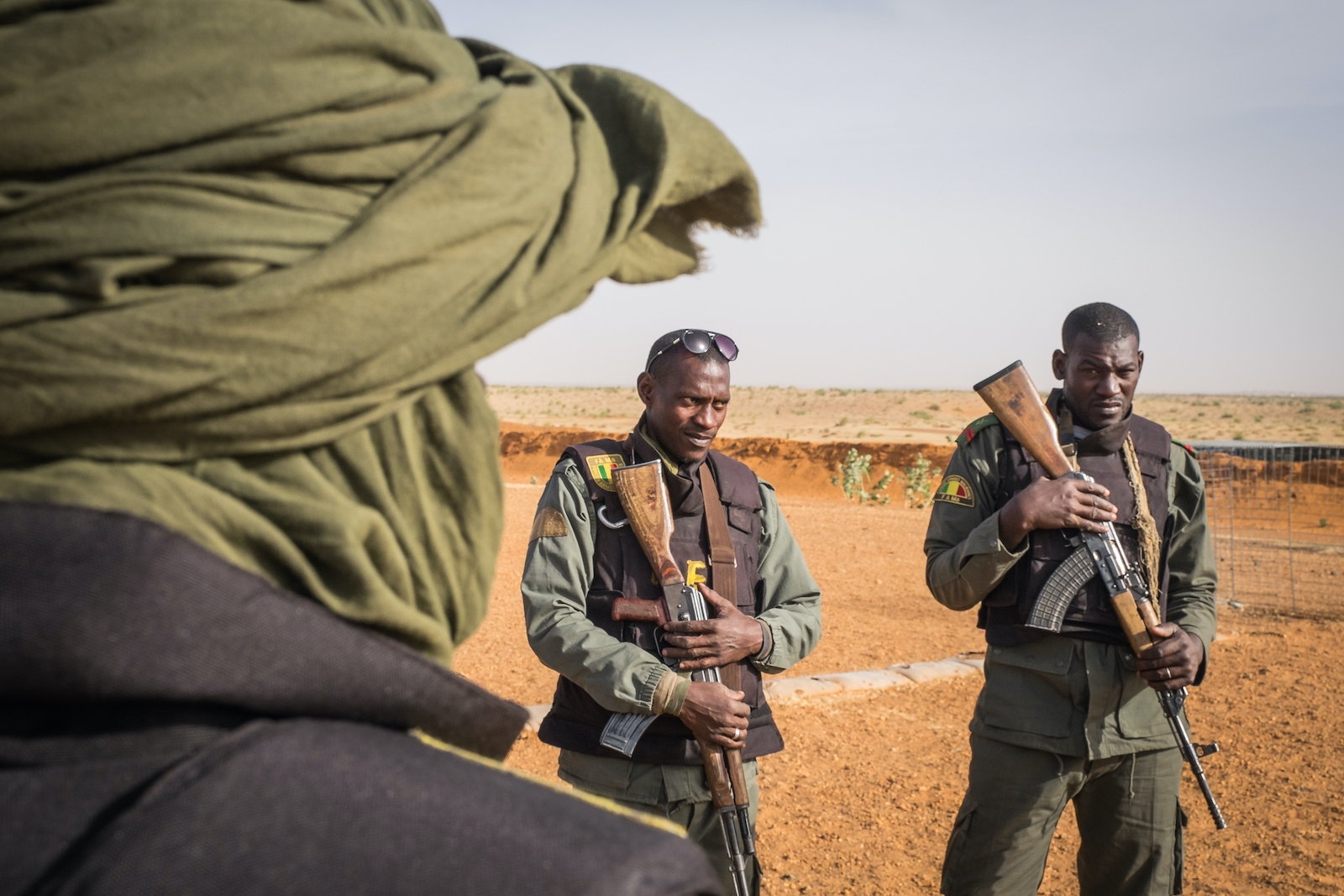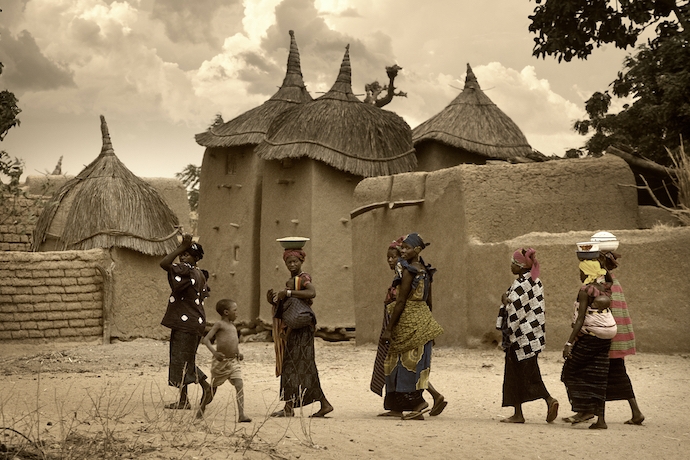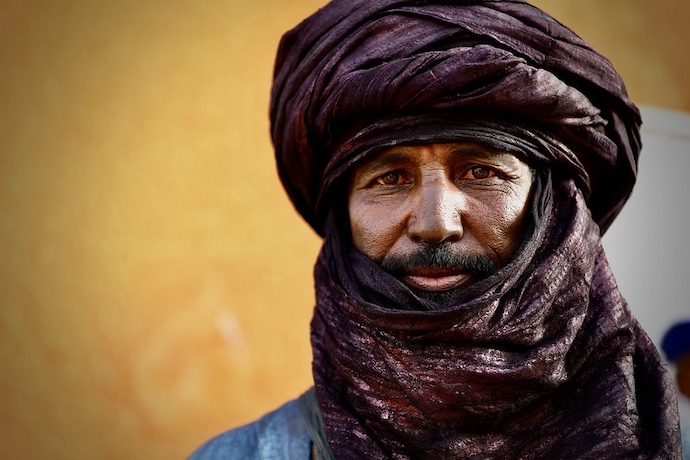
Opponents of Mali’s Goïta ‘Looking for Cracks’ in his Political Legitimacy
With the world consumed by the nightmare that is the still-unfolding health pandemic, certain other global events all too easily pass under the radar.
One such example is Mali, a landlocked country in West Africa.
Today, Mali is facing one of its most challenging times in recent years.
Some 5.9 million Malians currently require emergency humanitarian assistance; over 372,000 people have been displaced internally and nearly 47,000 have been forced to flee to neighboring countries as refugees. According to the Africa Centre for Strategic Studies, 2020 was the deadliest year of militant Islamist violence in the Sahel, a vast area that includes Mali, with an estimated 4,250 fatalities, an increase of 60% compared with 2019.
As with so much of Africa, Mali is also struggling to tackle the coronavirus crisis, with vaccination rates a fraction of those in the West.
After all of its recent turbulence, the country, led by a new interim leader, is only now just starting to get back on its feet again, albeit very slowly.
However, the Economic Community of West African States (ECOWAS), the UN, the African Union, and especially France, are clearly in no hurry to recognize Colonel Assimi Goïta, the former interim vice-president and current transitional leader of Mali, as the country’s legitimate president despite a decision apparently to the contrary by Mali’s constitutional court.
ECOWAS has declared that under no circumstances can the vice-president replace the president.

Even so, independent Western analysts report a sharp decline in the authority of state power in Mali due to a second military coup in May and current increased internal tensions within the country.
In May, Mali’s president and prime minister were ousted by Goïta, the officer who led last year’s coup and became vice-president of an interim government. Goïta says former President Bah Ndaw and Moctar Ouane, the country’s former prime minister, failed in their duties and were seeking to sabotage the country’s transition.
They were arrested hours after a government reshuffle which saw two senior army officers replaced. Goïta says he was not consulted about the cabinet reshuffle, in which he says he should have been named vice-president.
After the first coup in August 2020, Goïta had sought to lead the interim government, which is overseeing an 18-month transition to civilian rule.
Assimi Goïta says elections will still go ahead next year as planned.
The regional body ECOWAS, which mediated the transition deal, has insisted on a civilian leader.
France, the former colonial power, is particularly opposed to Goïta as the figurehead who might lead the unstable West African nation to a peaceful transition. It objects to his participation in any future presidential elections.
French media also often call Goïta “the boss of the junta,” and “the head of the military junta” and President Emmanuel Macron described the May coup as a “coup within a coup.”
This portrayal is, however, sharply at odds with those who see Goïta as a “strong” leader, one who can stabilize the country.
Opponents of Assimi Goïta specifically claim that he cannot run as president of Mali based on article 9 of the transition charter, adopted in 2020, which states that the president and vice-president of the transitional period do not have the right to participate in presidential and parliamentary elections.

That would appear to rule him out, but the fact is that the transition charter itself has no legal force, is not legally binding, and cannot override the country’s constitution.
Critics argue that the charter contradicts Mali’s constitution and that some of its provisions contradict each other.
One seasoned Brussels-based expert on African affairs said, “The charter was adopted behind closed doors without a national referendum and violates several articles of the constitution. Most importantly, there was no national vote, which is a gross violation of the international legal procedures and the laws of Mali. The thin document of several pages raises questions. The charter is unsupported by anything or anyone. The transitional charter is unconstitutional, and the question is: how could democratic countries have turned a blind eye to this?”
Many argue that it is wrong to question the legitimacy of Goïta, pointing to the fact that he currently commands strong support among the people of Mali.
It could be argued too that, after last year’s coup, he formed a balanced government and has not abandoned agreements with other countries. Diplomatic missions have been allowed to continue their work in Mali and Mali’s constitutional court has officially recognized and “legitimized” Goïta.
Even under the transition period charter, the role of the constitutional court has been preserved. Article 25 of the charter states that in case of “contradictions” between the charter and the constitution, the constitutional court must take precedence. The court recognized Goïta as interim president on May 28.
His supporters insist that Goïta must now be allowed to run for the presidency, the next key milestone in what most hope will be the next chapter in the history of this troubled state.
Goïta himself believes he should be able to participate in future presidential elections, saying he meets all legal requirements for presidential candidates under the country’s constitution: he is of Malian origin, is 38 years old (the threshold is 35 years) and has no criminal record.
He insists that he is committed to the transitional deal.
So, are Goïta’s presidential credentials legitimate?
The answer to this question seems to be that it should be the people of Mali themselves to decide at the ballot box.
As the famous academic Allen Buchanan once said, the legitimacy of any government lies in the ability of the government to meet the moral requirements of its people.
Goïta clearly remains the real power broker in Mali and his removal of Ibrahim Boubacar Keïta as president last year was generally celebrated. Goïta has asked people to continue to go about their business as usual and promises the military is committed to the transitional deal.
Denying Assimi Goïta the right to participate in elections would, it is argued, seem to be an outright disregard of the will of Mali’s impoverished people and, after everything they have been through, surely they are entitled to that.

